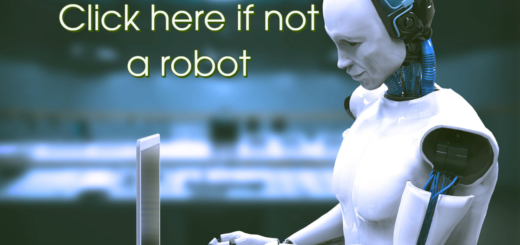The Future of Work in an AI world
Meet Manuel Hoffmann, a Harvard Postdoctoral Researcher working in the Laboratory for Innovation Science. His latest study “Generative AI and the Nature of Work” looks at how programmers changed their behavior when introduced to Copilot. In this natural experiment, they collected data from GitHub over one year, from June 2022 to June 2023, using an earlier model of Copilot which some programmers received and others did not. They found:
…that having access to Copilot induces such individuals to shift task allocation towards their core work of coding activities and away from non-core project management activities. We identify two underlying mechanisms driving this shift- an increase in independent rather than collaborative work, and an increase in exploration activities rather than exploitation. The main effects are greater for individuals with relatively lower ability.
Presumably, if they reran this study, we would find the results even more pronounced. While their study focused on software development, I was curious how their findings might relate education, particularly in light in light of my own changing work habits.
Core work vs. Project management activities
Considering the context of the study, focusing on software development, all administrative work is project management work. In education though, classes aren’t usually conceived of as projects. Instead, we refer to administrative work. Given that slight change, I would describe my core work activities are designing learning experiences, mentoring students, and conducting research. Administrative work activities include submitting grades, filling out forms, monitoring attendance, hiring new faculty, attending committee meetings, preparing dossiers, completing annual reports, and coordinating with partner institutions, among other things.
Not one faculty member I have spoken too likes administrative work. We all prefer our core work activities. So, what happens when you introduce generative AI into our work? For me, I started doing more core work activities because it’s damn fun to see the results. Not only am I far more productive, its work that drives my passions. I purposefully minimize my administrative work activities (not ignore them, in case my boss reads this) in order to spend more time doing the fun stuff with a new tool.
That’s at the individual work level. What about at the organizational level? What should the organization do with these tools? To the extent it can automate administrative work, it should. Administrative work can be conceived of as “service to the system”, whereas core work is “service to the customer”. The more time an organization can devote to service to the customers, the better. While having a well developed and well managed system enables service to the customer, it can also become prohibitive to that core work if too many resources are spent administrating, or worse the system doesn’t adapt to changing conditions and can no longer help customers.
The danger with automating the system is that bad processes become calcified. On the other hand, changing automated systems usually doesn’t hurt anyone’s feelings. As long as the automation is regularly reviewed, organizations should do so.
As organizations automate more of the administrative and project management work, organizations as a whole should become flatter, requiring fewer levels of management. Just imagine if an organization added an AI agent with access to all the company data, trained to think like the CEO, that all employees had access too. The CEO could establish the vision of the company and employees could discuss how their work fits within that vision with the AI. Sound crazy to give that much power to an AI tool? Well, we already give that power to hundreds of managers that often warp, distort, or change that vision for their own personal gains. Removing those barriers can help ensure the vision stays true. Certainly, some safeguards need to be built in, but that’s a topic for another post.
Independent vs. collaborative work
The study above also found that programmers using Copilot are doing more independent work than programmers not using Copilot. Coupled with this finding, programmers with less ability found greater efficacy from using Copilot that more experienced programmers. My interpretation of this find is that Copilot filled the knowledge gap. Experienced programmers didn’t find the advantage of Copilot as significant as unexperienced programmers. This might be mitigated by the fact this study took place 2 years ago and the AI models are now significantly better. So much so that even experienced programmers find extreme utility in their usage. Consider Microsoft CEO’s claim that 30% of Microsoft code is now AI generated.
Programming is inherently an individual act, requiring deep thinking about coding problems. Collaboration becomes necessary when a coder hits a road block – when they can’t figure out the code on their own. Copilot and other genAI tools allow individuals to get answers quicker – from a chatbot that’s available 24/7, rather than bugging another developer who may be busy with their own coding problems.
In my own work, I’ve discovered the ability to do a far wider range of skills than I previously could. My marketing skills have improved. My coding skills have improved. My artistic skills have improved. All of these skills have improved when I use ChatGPT to brainstorm, create, or edit content. Does that mean I’m collaborating less? That’s hard for me to measure. It certainly seems like I’m emailing others just as often as before. There is a wider range of work activities I send emails about. But I’m still collaborating.
That being said, I’m still convinced that white collar work will become more managerial in nature with each worker in charge of a bunch of AI agents that help them do their work tasks. If true, more time may be spent managing the agents than interacting with other people. Wait… does that mean we will be doing more managing/admin work than core work? Not at all. It means we will delegate more admin work to AI agents so that we can focus on our core work.
Exploration vs. Exploitation
While I’m not a fan of the naming convention adopted from James March, the study uses these terms to denote a focus on exploring new capabilities (exploration) versus refining existing capabilities (exploitation). In the study, this focus was operationalized by the extent programmers using Copilot branched out into work with new projects (exploration) versus continued working on existing projects (exploitation).
This makes sense if we consider that a programmer that specializes in one particular skill, such as security, might finish work with their specialty work twice as fast with Copilot. If so, then they could work on twice as many projects. I’m not convinced that’s the exploration vs. exploitation differentiation that March envisioned.
However, their second data point better fits March’s capabilities notion. The study looked at exposure to new programming languages. Here again, those with Copilot were more likely to work with new programming languages than those without Copilot.
This largely aligns with my experience with ChatGPT. I have already noticed my changed perspective on new capabilities, with a much greater willingness to tackle things outside my comfort zone because I know I can quickly learn these capabilities with the help of a generative AI.
Future of Work
With so much rhetoric about the imminent elimination of many white-collar jobs, what does the future of work, organizations, and the economy look like? Let me put on my futurist hat for a bit and do some predictions. Here’s what I expect in the 5-10 year span.
Individuals working independently already achieve major improvements in their productivity. The big question is in 5 years, how well can organizations adapt and adopt improved automation system and integrated AI systems that radically transform how they do business. While it’s easy to suggest that organizational structure will become flatter, organizations will struggle to do so. Their existing bureaucracy will push back hard, arguing that humans need to stay in the loop for decision making, even if its not necessary.
Organizations that use generative AIs to automate core work (like programming or marketing) and laying off those employees, will find only short term gains (1-2 years). However, they will quickly be surpassed by organizations that automate admin work, empowering their front-line employees with more core work capabilities and productivity. New entrants won’t be saddled by any of these major changes. In fact, I predict this will be an optimal time to start a business in almost every industry. By automating most of the administrative work, small businesses will suddenly be able to achieve amazing things really fast. Will we see the first billion dollar company with less than 10 employees?
Every business will become a service business. With all of this automation, the prices of products will drop to where there’s little competitive advantage in being a products company. Businesses will succeed to the extent they shift to a service model. In such a model, humans will be differentiating factor. With such a model, the defining characteristic of the winner will be the extent the can delight their customers.
To take one example, education. I can envision a new Learning Management System that automates much of the drudgery of teaching. Furthermore, the system could learn about the student through repeated interactions and customize the experience for each student. Eventually, personalized curriculum could be integrated within an chatbot that guides students through the materials, ensuring that students master content before moving on to more complex topics.
What would be the role of a teacher? Classrooms would still exist, as students gather together for social connection. Teachers could become mentors, coaches, or councilors, that ensure the students work on important curricular items, but also address social, emotional, or psychological issues as they emerge. They could also enhance the computer based instruction with classroom activities that can’t be duplicated with a computer. If teachers are no longer grading the student’s work, then a more positive relationship can emerge between students and teachers. A relationship where students are delighted to see their teacher, attend school, and continue their education.
In such a world, teacher jobs still exist. However, the focus of their work would change. Instead of being domain experts, they would be mentoring experts or coaching experts. Instead of spending lots of time grading homework, teachers can focus on their core work – helping students grow and succeed with life.
The speed in which this shift in the nature of jobs occurs will define the extent of unemployment. Businesses that shift quickly to focus more on core work will be able to avoid the layoffs. Similarly, a country where many businesses make that shift quickly, massive layoffs and high unemployment can be avoided. If too many business focus on the short term goal of saving money by automating core work, then massive unemployment would be inevitable in 5-10 years.
And that is my prediction on the future of work.


